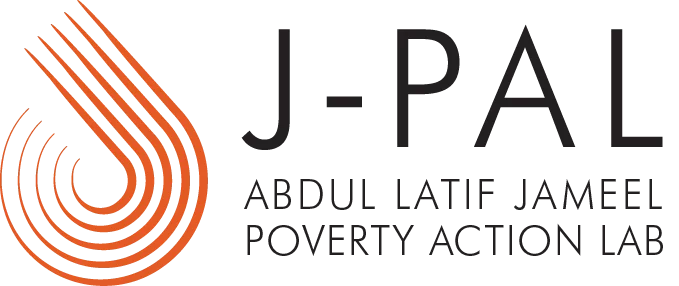Postdoctoral Research Fellowship (ID, Payments, and Governance) – J-PAL Africa – South Africa
Postdoctoral Research Fellowship, Africa Research Initiative on Identification, Payments and Governance
Southern African Labour and Development Research Unit
The University of Cape Town
J-PAL Africa seeks a postdoctoral research fellow to join the Africa Research Initiative on Identification, Payments and Governance. The postdoctoral fellow will work under the academic supervision of Professor Tavneet Suri at MIT and will work in collaboration with J-PAL Initiative staff.
African governments are the drivers of the policy, regulatory, and infrastructure interventions needed to scale digital financial services across the continent. However, there is a glaring lack of rigorous, peer-reviewed evidence on how African governments can leverage payments and ID systems to deliver social protection and other public goods and services, increase fiscal space, reduce corruption, improve efficiency, and, most importantly, boost welfare of citizens, particularly marginalized groups and women.
The ID, Payments and Governance Initiative consists of a research fund to study innovative government payment systems and reforms. This work could cover a range of possible digital financial service and governance interventions, including but not limited to :
- Migrating cash-based G2P payments into digital channels ;
- Using ID technologies to eliminate ghosts from government payrolls and other social programs ;
- Migrating price subsidies for commodity subsidies into direct benefit transfer (DBT) payments, and ;
- Using payments and ID systems to broaden the tax base in a progressive manner.
The Initiative will support these efforts by assisting governments in piloting and monitoring new reforms and in supporting rigorous research projects (mostly randomized evaluations) to determine the impact of roll-outs of promising payment and ID reforms. The Initiative will additionally help build the capacity of local researchers to conduct rigorous high-quality evaluations by integrating them as lead investigators and co-authors on funded research projects.
The postdoctoral fellow will be responsible for delineating the research agenda for the Initiative and will write a white paper. The postdoc will work with stakeholders across the continent to develop new projects and design the piloting, monitoring and research agenda around each new project. The postdoc will also support the local researcher capacity building efforts including mentoring and collaborating with local researchers involved in the Initiative. The position offers the opportunity to join a research partnership with a strong track record of high-quality publication and policy impact; is likely to lead to several co-authored papers; and is designed to help the selected candidate launch a successful academic career with a strong research pipeline.
The position will be based at J-PAL Africa, the Africa hub of J-PAL Global, which is located in the Southern Africa Labour and Development Research Unit (SALDRU) in the University of Cape Town School of Economics. The Abdul Latif Jameel Poverty Action Lab (J-PAL) consists of a global network of academics who specialise in conducting randomised evaluations of social policies/programmes to generate scientific evidence about what works in the fight against poverty. J-PAL’s policy group analyses and disseminates research results and builds partnerships with policymakers to ensure that policy is driven by evidence, and effective programmes are scaled up.
Applications are invited from candidates who :
- Have achieved a doctoral degree no more than 5 years ago ;
- Have not previously held any permanent professional academic posts.
Minimum requirements :
- A PhD in economics or a related field ;
- Demonstrated an interest in the field of economic policy, especially financial services for the poor and government reforms ;
- Strong STATA or R computing skills ;
- Experience in compiling and using large and complex datasets ;
- An ability to communicate academic research to varying audiences ;
- Strong academic and policy writing skills ;
- At least two working papers, with published journal articles an added advantage.
Highly advantageous :
- Demonstrated interest in financial services for the poor and government reforms ;
- Experience with administrative data, including setting up high frequency data checks ;
- Experience with running and analyzing randomized evaluations ;
- Interest and experience in mentoring other researchers ;
- French language ability.
Applicants are required to submit :
- A letter of motivation clearly addressing your qualifications ;
- A CV including details of any conference presentations, working papers and/or publications ;
- The names and contact details of 2 academic references who have taught/supervised the candidate at university.
Conditions of Award :
The successful candidate will be required to :
- Register as a Postdoctoral Research Fellow in SALDRU at the School of Economics at UCT ;
- Enter into a Memorandum of Understanding with her/his Principal Investigator and adhere to the plans and agreements therein ;
- Comply with the University’s approved policies, procedures and practices for the postdoctoral sector.
Value and Terms :
The total value of the postdoctoral fellowship will range from ZAR150 000 to ZAR400 000, for a full academic year. Fellowships are awarded for one year and are renewable for another year on evidence of satisfactory academic progress. Relocation expenses are not covered by the fellowship.
How to Apply :
Closing date for receipt of applications is 1 February 2018. Applications will be reviewed on a rolling basis.
Enquiries and completed application should be forwarded to Jay Adjei at jay.adjei@uct.ac.za or nadjei@povertyactionlab.org.
Eligible applicants will be considered by the Initiative Chair.
Non- South African Candidates will need to obtain work permissions to work in South Africa.
The University of Cape Town reserves the right to disqualify ineligible, incomplete and/or inappropriate applications, to change the conditions of award and/or to make no award at all.
